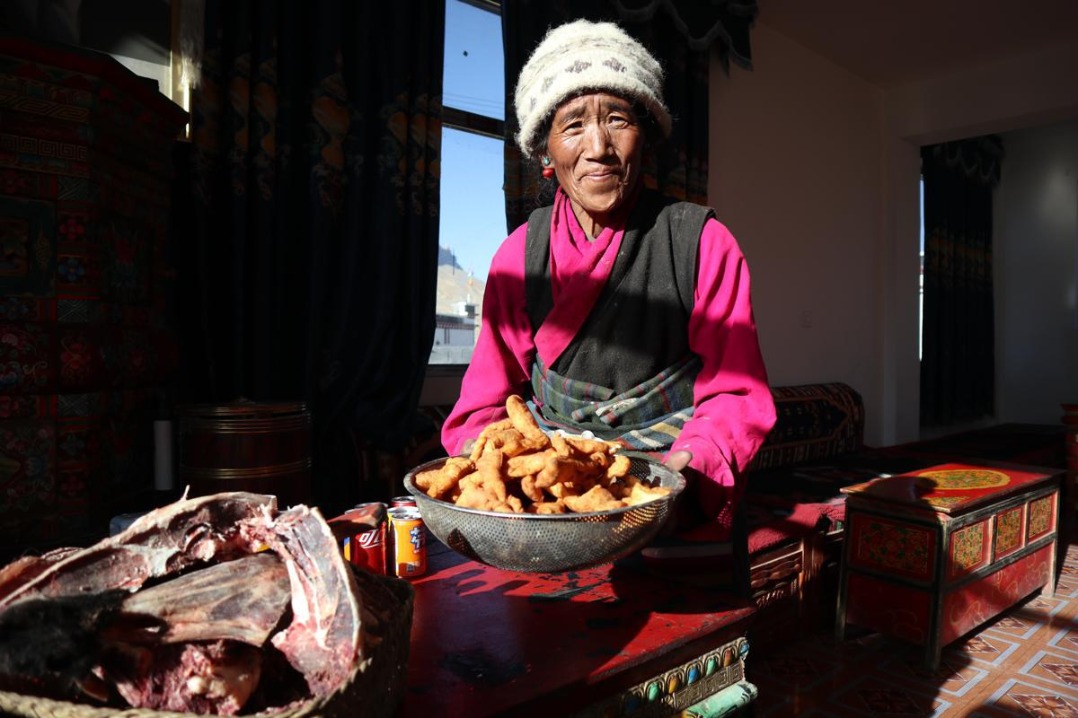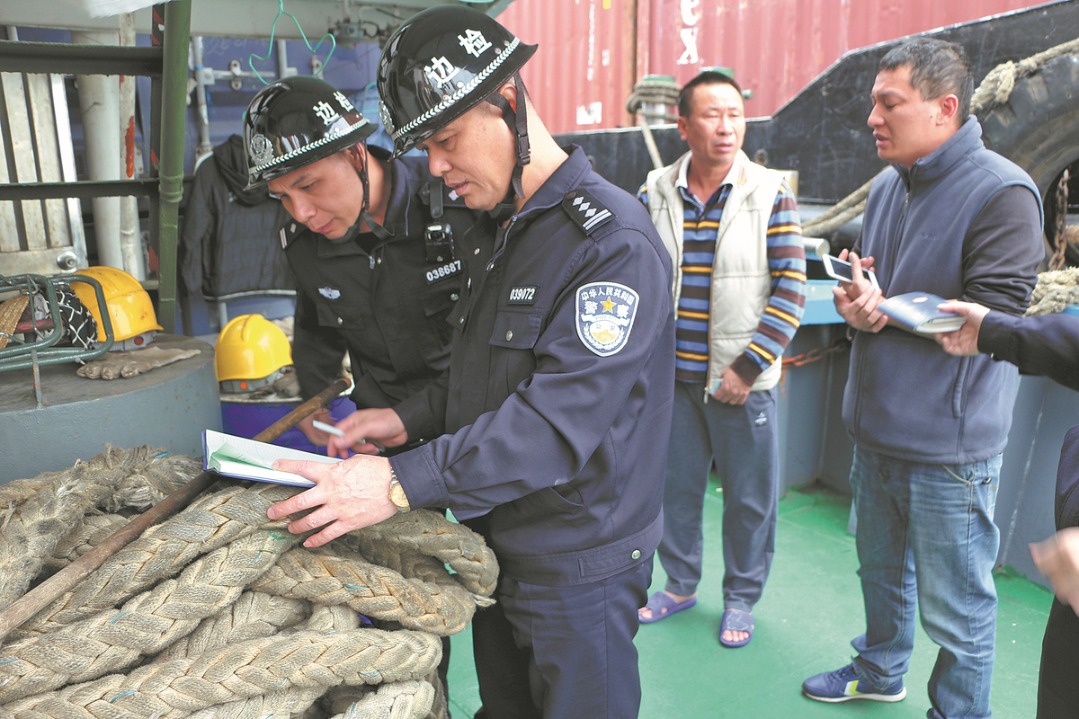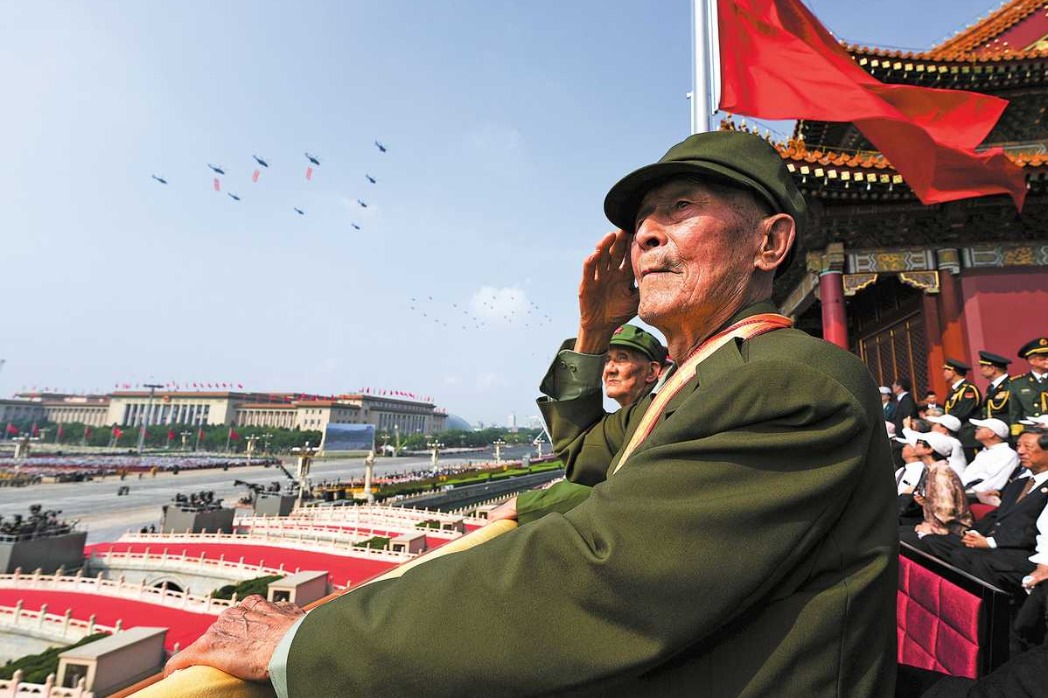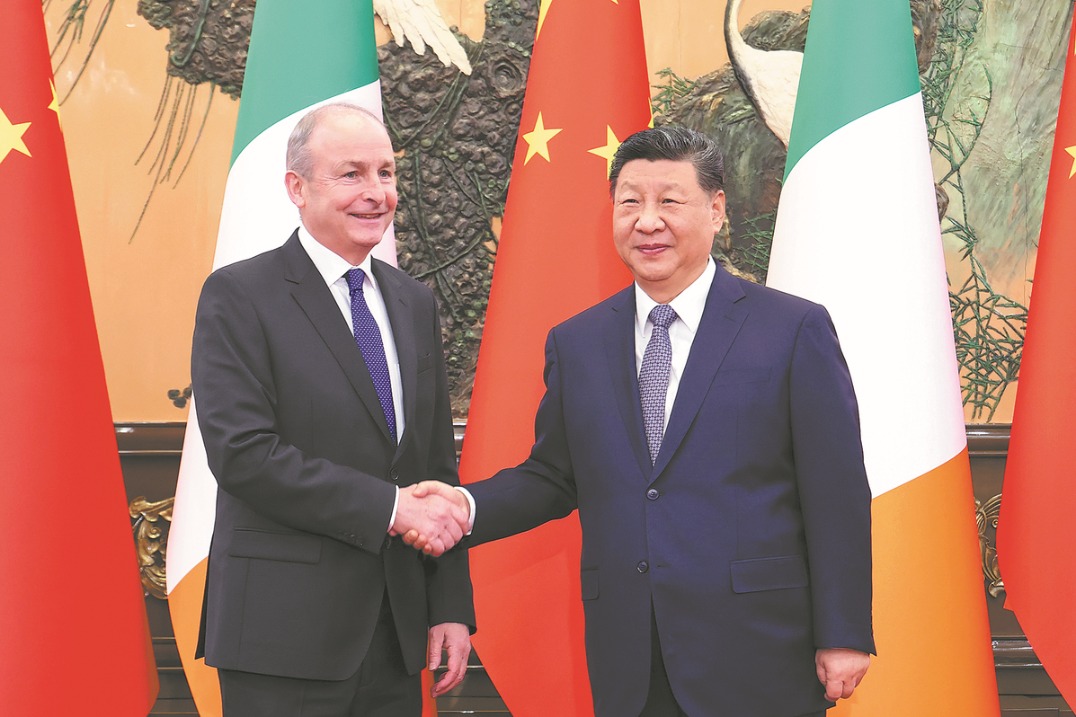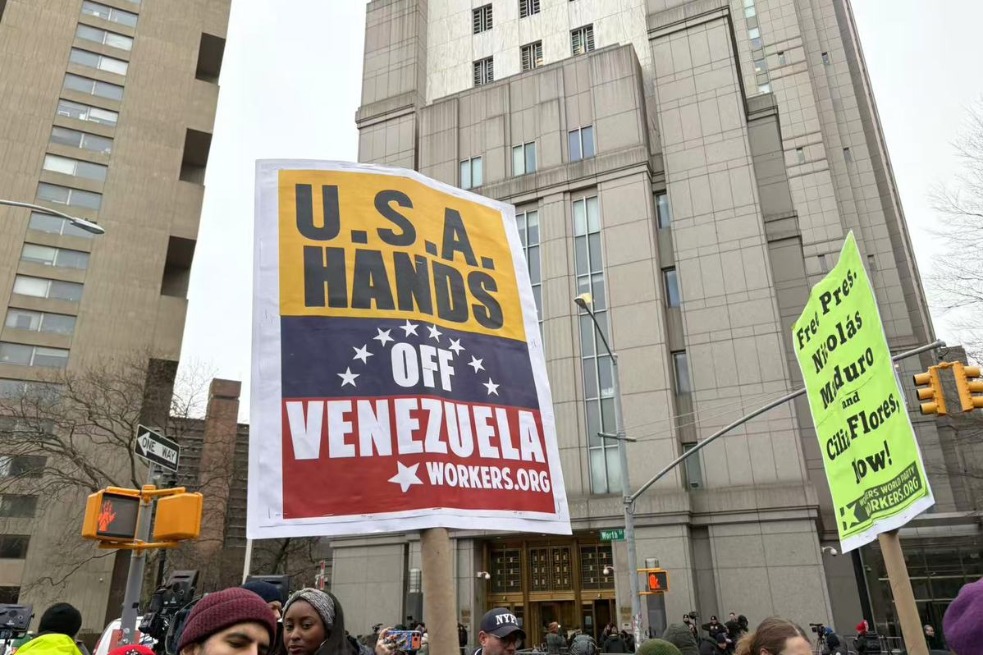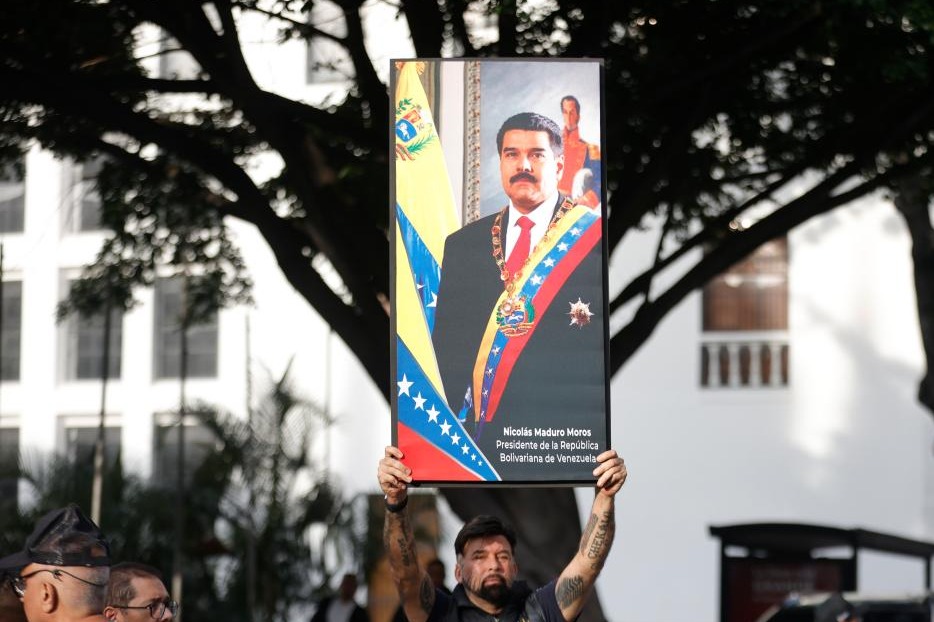Middle East detente shows dialogue, not war, only way to resolve disputes: China Daily editorial

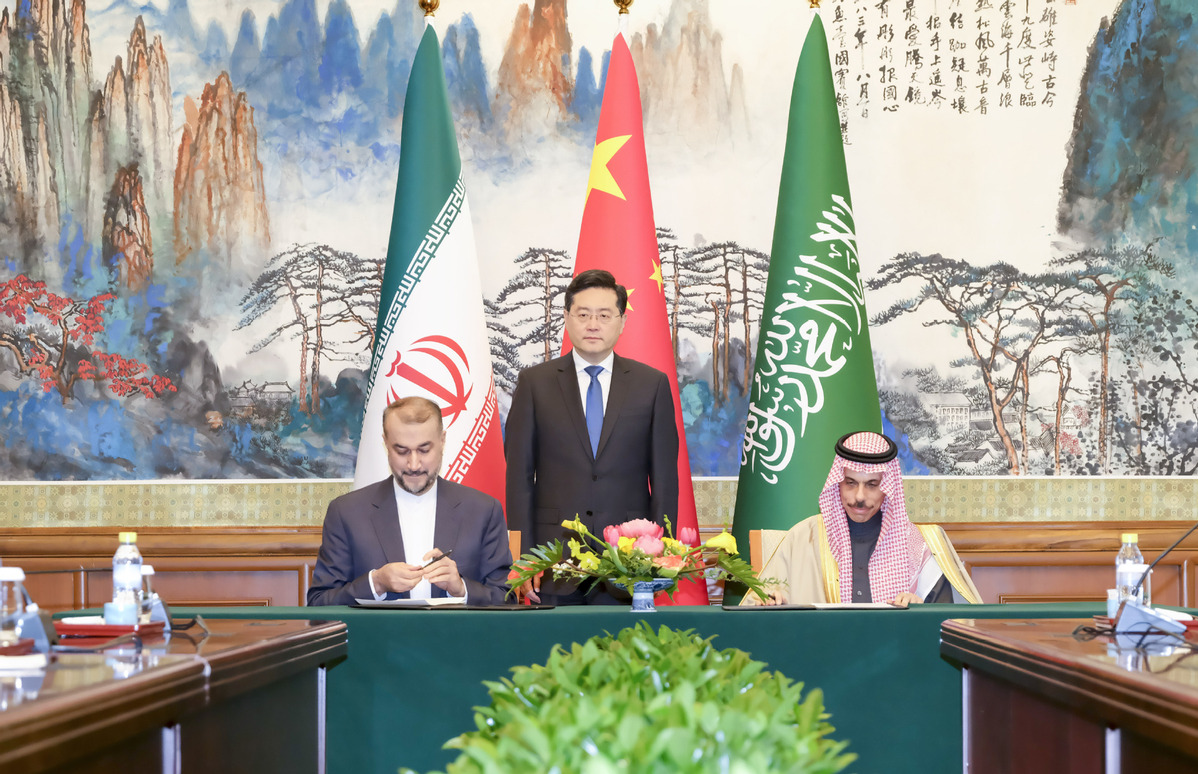
With Riyadh and Teheran announcing in Beijing on Thursday the official re-establishment of their diplomatic relations, there are hopes that a permanent cease-fire can be agreed to put an end to the Yemen conflict, a de facto proxy war between the two Middle East giants that has been fought for nine years.
It is good to hear that Saudi and Omani delegations arrived in Yemen's capital Sana'a over the weekend to negotiate a permanent cease-fire deal with Houthi officials, which aims to end hostilities and rebuild efforts and a timeline for foreign forces to exit the country. If the talks go well, reportedly, an agreement is expected to be announced before the Eid al-Fitr holiday, which begins on April 20.
This means that thanks to China's pro-peace efforts and mediation, with the reconciliation of relations between Saudi Arabia and Iran, and the positive role Oman has been playing in the process as well as the United Nations' support, the stage has been set to end the conflict in Yemen.
As a matter of fact, ending the war in Yemen has always been in China's consideration in its mediation between Saudi Arabia and Iran. As Geng Shuang, deputy permanent representative of the Chinese mission to the United Nations, pointed out on March 15, dialogue and negotiation are the only realistic way out of the Yemen issue, and China hopes that the resumption of diplomatic relations between Saudi Arabia and Iran will create favorable conditions for the improvement of the situation in Yemen.
Before the arrival of the delegations, the two sides have already shown their respective goodwill to each other. The Saudi coalition lifted eight years of restrictions on imports through Houthi-controlled ports, and almost at the same time, the Houthi forces announced that they would unilaterally halt missile and drone strikes against Saudi Arabia and all offensive operations on the battlefield, pledging that if Saudi Arabia promised to lift its blockade of Yemen and halt its air campaign, it will permanently cease fire.
It is fair to say that by turning swords into ploughshares in Yemen, one of the poorest countries in the world with a population of nearly 30 million, about 80 percent of whom are dependent on humanitarian aid because of the war, the Beijing-brokered resumption of diplomatic relations between Saudi Arabia and Iran is serving as a starting point for a series of positive chain reactions in the Middle East.
All these have happened after the United States' "strategic withdrawal" from the region where for too long it had thought it could waywardly play countries off against one another and speculate on the mess. And it was during its "stay" that the regional conflicts and issues worsened and were made seemingly insoluble, except by war.
The series of positive changes the region has experienced and has enough reason to expect in the foreseeable future show to the world that the right way to solve disputes should always be dialogue, not war.
















